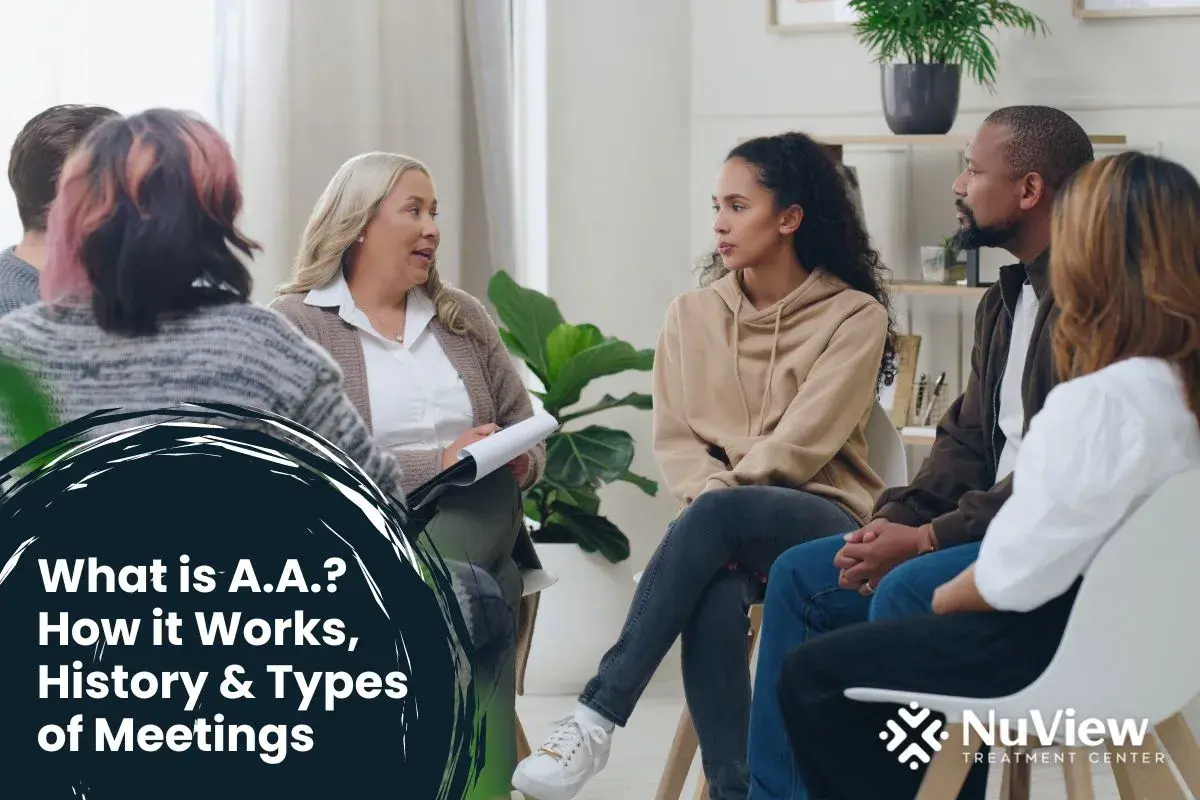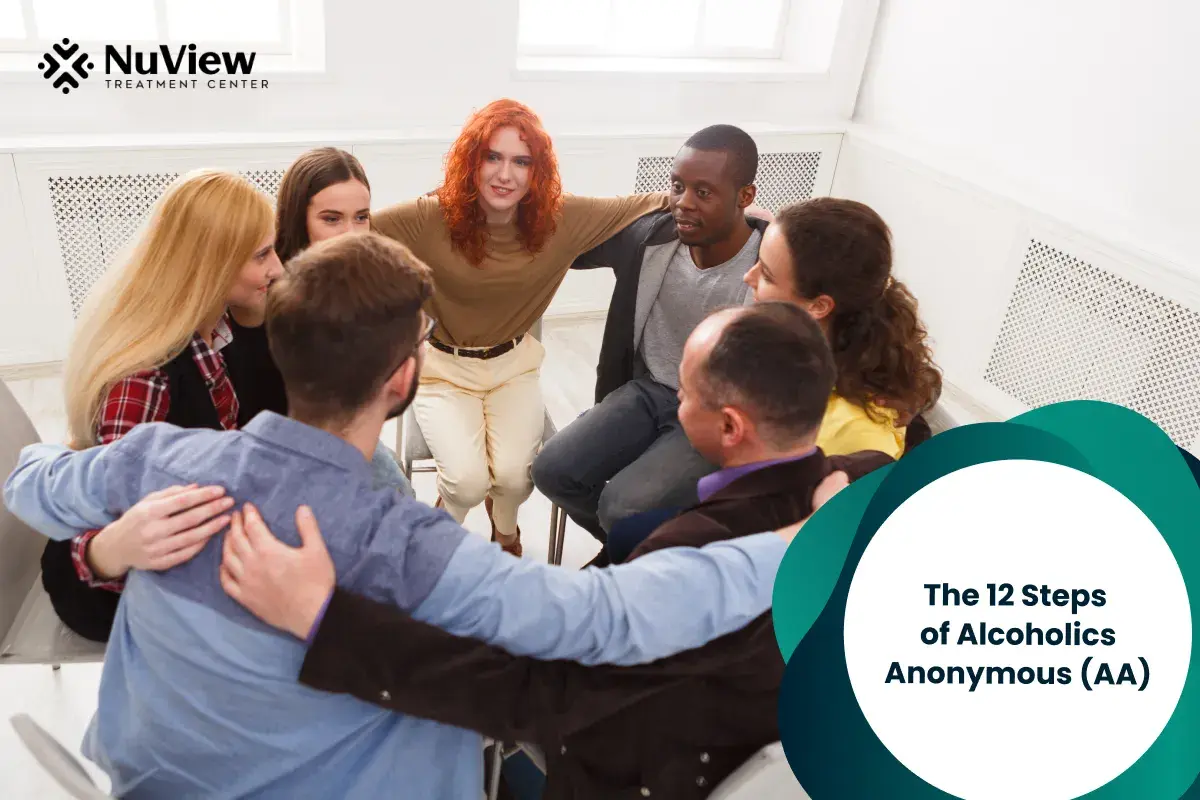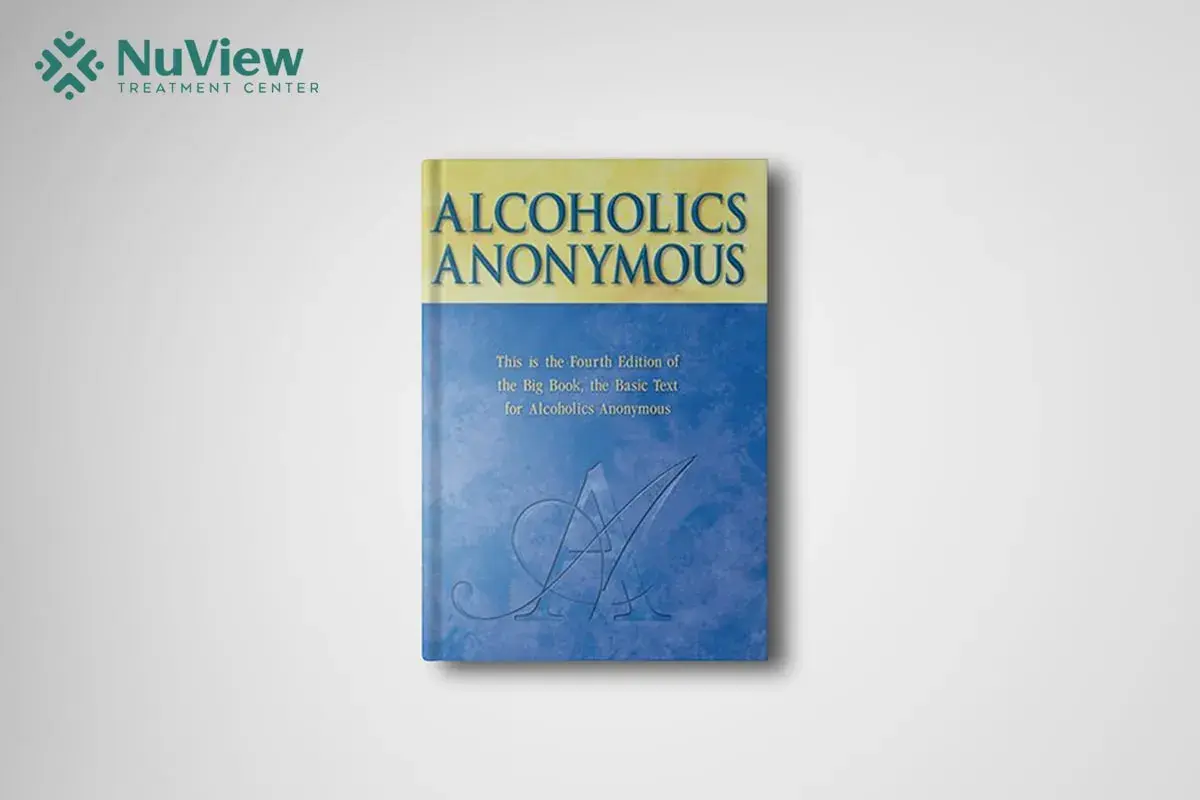You might have seen AA meetings being depicted in the movies or heard about them from people around you, as an awkward meeting where people just sit in a circle and share stories. But AA is much more than that, it's a community that will help and push you on your road to sobriety.
Alcoholics Anonymous (A.A.) is an international mutual aid movement that started during the Great Depression, which consists of a wide network of autonomous, self-supporting groups. AA's stated primary purpose is to help individuals struggling with drinking problems by providing an environment where members can share their struggles and experiences to stay sober and support each other's recovery.
Here's everything you need to know about it and more.
How A.A. Works?
Alcoholics Anonymous (AA) is rooted in the 12-step program established in 1939, offering a set of guiding principles for the recovery process from alcohol use and substance use disorders. The steps emphasize personal responsibility, self-awareness, and the importance of building a supportive network.
The 12 Steps encourage individuals to acknowledge their powerlessness over alcohol, take responsibility for their actions, make amends with those affected by their drinking, and develop a spiritual connection with a Higher Power. Through these steps, along with the support and guidance of fellow members, individuals work towards lasting sobriety.
What AA Does Not Do?
Now that we have a clear idea about what Alcoholics Anonymous is, let’s understand what activities it does not perform:
- Provide initial motivation for alcoholics to recover.
- Conduct or support research.
- Keep attendance records or personal histories.
- Recruit members.
- Make medical or psychological diagnoses or prognoses.
- Join social agency councils.
- Monitor or control its members after meetings.
- Offer detox services, nursing, hospitalization, medication, or psychiatric treatment.
- Hold religious services.
- Offer domestic or vocational counseling.
Get Started With Nuview Treatment Center
Our dedicated professional staff is here to guide you or your loved one on the journey to lasting recovery, offering support every step of the way.
Who are A.A. Members?
A.A. members come from all walks of life, ranging in age from 18 to over 80, and may be single, married, divorced, or separated. Whether still drinking or newly sober, all A.A. members share a common goal: a desire for sobriety and a willingness to take action. Some have been sober for decades, while others are just beginning their journey. Members come from diverse backgrounds, from affluent families to those who have experienced homelessness.
Many A.A. members have gone through treatment programs such as detox, rehabilitation centers, or other therapies before joining Alcoholics Anonymous for continued support in maintaining sobriety. They can sign up for recurring meetings or support groups tailored to specific needs, including substance use issues, to help them stay sober.
There are no age, education, or background requirements to participate in A.A. meetings—everyone is welcome. According to research in the Cochrane Database, members inspire each other to make positive changes, complementing various approaches to achieving sobriety.
Can I Join AA Meetings?
If you are someone who is confused about whether you can join these meetings or are unsure if you need them, just go for it and see if they are something you are interested in. Even if you are not an alcoholic but someone who has a loved one suffering from Alcohol abuse, you can join in to learn more about their thought process, and how to help them better.
??Whether you're struggling with alcohol addiction, questioning your drinking habits, or just looking for support, AA meetings are a judgment-free space where you’re welcome. It's a judgment-free community that is completely anonymous, inclusive, and free.
Get Started With Nuview Treatment Center
What Are the Different Types of Programs Offered by Alcoholics Anonymous?
Open vs. Closed Meetings
Alcoholics Anonymous meetings can be either open or closed. An open meeting is one in which anyone can attend, including friends and family members of alcoholics, as well as individuals interested in learning more about Alcoholics Anonymous and its program. These are good for building a support system for those in recovery and introducing the program to those unfamiliar.
A closed meeting is restricted to only members of Alcoholics Anonymous. It's generally used for accountability and sharing recovery stories. These are suitable for those who need more privacy and want to focus on personal growth without the distraction of outsiders.
Speaker Meetings
Speaker meetings are held by Alcoholics Anonymous to give members a chance to hear first-hand stories about recovery and sobriety from those who have been successful in their journey. Speaker meetings can be used as a way for attendees to gain insight into how others have dealt with similar issues and provide hope for continued success in achieving sobriety.
Big Book Meetings
Big Book meetings are based on the Alcoholics Anonymous book, which serves as the main text for Alcoholics Anonymous. These meetings focus on discussing topics from the book and provide an opportunity to gain insight into how these topics can help alcoholics achieve and maintain sobriety.
The Alcoholics Anonymous book serves as a guide for those in recovery and can provide much-needed support and guidance on their journeys.
Discussion Meetings
Discussion meetings allow members of Alcoholics Anonymous to have an open and honest dialogue about their recovery. These meetings are typically more casual and allow members to share stories, experiences, successes, challenges, and any other topics related to sobriety.
Discussion meetings can be a way for those in recovery to gain further insight into Alcoholics Anonymous while providing support and understanding to others.
Online vs. Offline Meetings
In addition to traditional face-to-face meetings, Alcoholics Anonymous also offers online meetings. These are typically held via video conference or telephone, providing the same support and guidance as offline meetings. Online meetings can benefit those unable to attend face-to-face meetings due to distance, mobility issues, or other factors. Studies showed that online meetings were beneficial during the Covid-19 lockdown.
Specialized Meetings
Alcoholics Anonymous also offers specialized meetings for those in the LGBT community, young people, women, and other specific groups. These can be beneficial for providing a safe and understanding space in which members of these groups can share experiences related to recovery without feeling judged or isolated. E.g., you can have AA meetings as a part of a young adult rehab program.
Regardless of the type of meeting attended, Alcoholics Anonymous provides an invaluable resource for those in recovery and anyone looking for support in achieving sobriety. By providing a variety of meetings, the organization can allow individuals to find what works best for them and continue on their journey toward a better life. With Alcoholics Anonymous, it is possible to lead an alcohol-free life with hope for the future.
What Are The Benefits Of Joining AA?
People all over the world opt for Alcoholics Anonymous meetings because they provide a sense of community with people who have similar experiences and struggles with alcohol. Some of the other benefits are-
- Free and open to anyone who wants to stop drinking
- Support from people who have gone through similar experiences
- Chance to learn from the mistakes others made in their journey to recovery
- Safe, non-judgmental environment
- The 12-step program that makes tracking recovery easy
- Builds accountability and consistency
- Helps reduce isolation and shame
- Very Accessible due to availability globally, including online meetings
- Encourages long-term emotional healing
- Offers long-term support and community
Finding an AA Group Near You
Alcoholics Anonymous meetings are held globally and are open to anyone affected by alcohol use. To find an AA meeting near you, visit the Alcoholics Anonymous website, where you can search for meetings by location and view a list of upcoming events.
At NuView Treatment Center, you can easily look for AA meetings near you. Our team of dedicated professionals is here to help individuals in recovery find the resources and support they need to return to living a life free of drug dependence. Contact us at (323) 307 - 7997 or email us at info@nuviewtreatment.com to learn more about how we can help you.
Frequently Asked Questions
Who can join AA?
Anyone who wants to stop drinking is welcome; there are no fees, no formal membership, and no qualifications needed beyond the desire to quit alcohol.
How Effective is Alcoholics Anonymous in Achieving Sobriety?
Alcoholics Anonymous is very effective in helping individuals achieve and sustain sobriety. Recent studies have found that those who attend at least 90 meetings in their first year of membership have an 80-90% success rate.
What happens at an AA meeting?
Members share their experiences, listen to others, and support one another in recovery. Participation is voluntary—you’re not required to speak if you’re not comfortable.
What Criticisms Has Alcoholics Anonymous Received?
Though Alcoholics Anonymous has proven successful in helping many individuals achieve sobriety, the program has received criticism. Some of the complaints include its lack of scientific grounding and the requirement for members to adhere to certain beliefs. Additionally, some believe AA is too focused on spirituality and religion rather than practical advice to help individuals achieve sobriety.
What Literature is Associated With Alcoholics Anonymous?
The most widely recognized piece of literature associated with Alcoholics Anonymous is the book Alcoholics Anonymous: The Big Book. This text serves as an instruction manual for members and contains stories from those who have completed the program. In addition to this book, several other books discuss the AA program more in-depth, such as Pass It On: The Story of Bill Wilson; How the A.A. Message Reached the World and Alcoholics Anonymous Comes of Age: A Brief History of A.A. There are also several guides to working through the program, such as 12 Steps & 12 Traditions and The Little Red Book for Women.
Can I go to AA even if I haven’t quit drinking yet?
Yes. If you’re thinking about quitting or questioning your relationship with alcohol, you’re welcome at AA meetings.
How often should I attend AA meetings?
There’s no set rule, but many people attend daily or weekly, especially early in recovery. Consistency helps build momentum and support.
- How A.A. Works?
- What AA Does Not Do?
- Who are A.A. Members?
- Can I Join AA Meetings?
- What Are the Different Types of Programs Offered by Alcoholics Anonymous?
- What Are The Benefits Of Joining AA?
- Finding an AA Group Near You
- Frequently Asked Questions
- How A.A. Works?
- What AA Does Not Do?
- Who are A.A. Members?
- Can I Join AA Meetings?
- What Are the Different Types of Programs Offered by Alcoholics Anonymous?
- What Are The Benefits Of Joining AA?
- Finding an AA Group Near You
- Frequently Asked Questions
Get Help Today!
Kelly J. F. (2017). Is Alcoholics Anonymous religious, spiritual, neither? Findings from 25 years of mechanisms of behavior change research. Addiction (Abingdon, England), 112(6), 929–936. https://doi.org/10.1111/add.13590
Kelly, J. F., Humphreys, K., & Ferri, M. (2020). Alcoholics Anonymous and other 12-step programs for alcohol use disorder. The Cochrane database of systematic reviews, 3(3), CD012880. https://doi.org/10.1002/14651858.CD012880.pub2
Kaskutas L. A. (2009). Alcoholics anonymous effectiveness: faith meets science. Journal of addictive diseases, 28(2), 145–157. https://doi.org/10.1080/10550880902772464
Gross M. (2010). Alcoholics Anonymous: still sober after 75 years. 1935. American journal of public health, 100(12), 2361–2363. https://doi.org/10.2105/AJPH.2010.199349
Bergman, B. G., Kelly, J. F., Fava, M., & Eden Evins, A. (2021). Online recovery support meetings can help mitigate the public health consequences of COVID-19 for individuals with substance use disorder. Addictive behaviors, 113, 106661. https://doi.org/10.1016/j.addbeh.2020.106661
Everyone is Welcome Here and We All Have Your Back
Your healing journey deserves a personalized approach. At NuView, we integrate expertise in behavioral therapy, mental health, and substance use treatment to create a customized recovery plan tailored to your unique needs.
Connect with our Admissions Specialists today.







Written By
Dr. Ryan Peterson